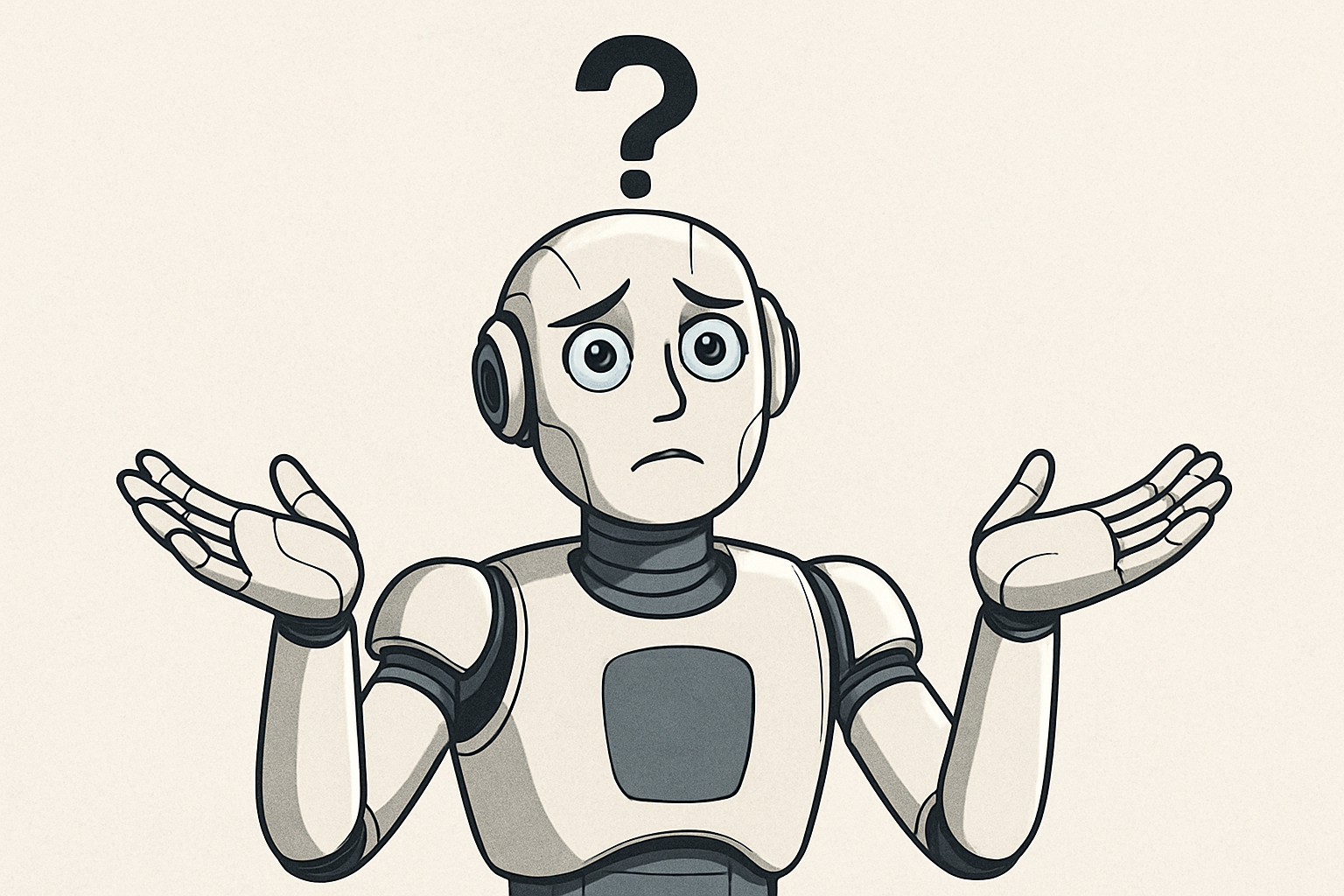
The big value of AI? Stopping humans from becoming confused robots
By now we’ve all been beaten around the head with the message that AI is the new rock star. It writes poems, paints like Picasso, and can probably tell you what you had for breakfast three Tuesdays ago. But really, if all we’re doing with AI is making it admire itself in a digital mirror, we're doing it wrong. AI is capable of all sorts of technological wizardry, but the most important thing it should be doing is keeping us from having a full-blown existential crisis trying to keep up!
These days, change doesn't politely knock -- it barges in like a caffeinated squirrel. A recent Nexthink report found that 94 percent of companies think their survival depends on AI in the next three years. But here's the kicker: less than half (47 percent) of employees have the skills to actually get to grips with AI. For some, it’s going to be like trying to teach a goldfish quantum physics. The divide between where they are now and where they need to be? It's a gap, a chasm, a digital Grand Canyon! But for the brave few who are willing to build a bridge for them, it’s a massive opportunity.
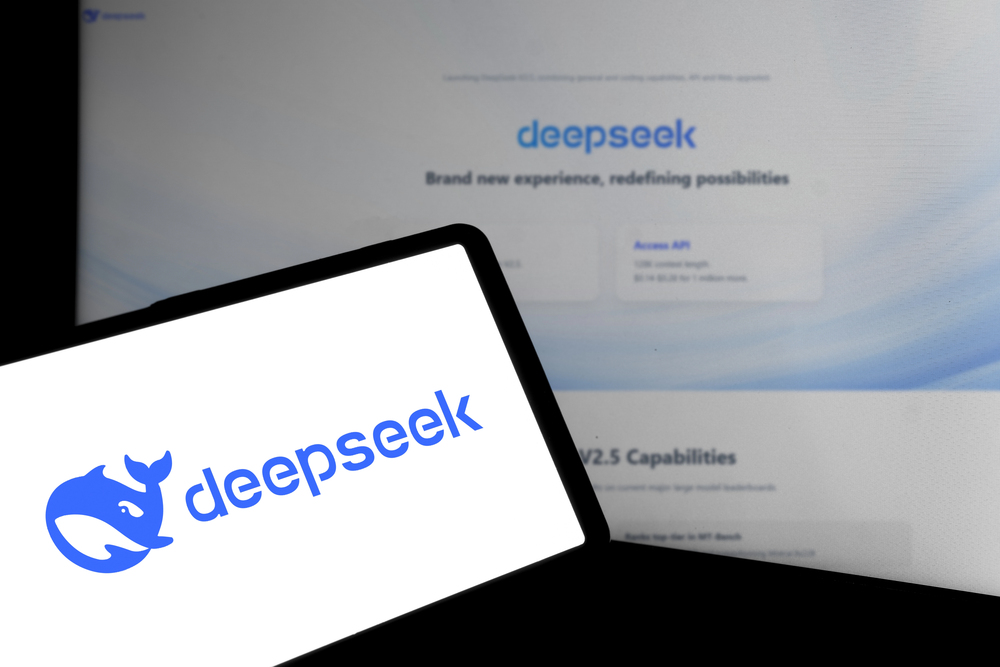
Beyond DeepSeek: 3 critical questions for the future of AI
This year started with a shockwave for the tech world, and the AI community in particular. Launched by a relatively obscure Chinese startup, DeepSeek not only challenged the rules of the AI game by sending Nvidia's stock plummeting 17 percent in one day and becoming the most-downloaded app on the App Store and Play Store, but also showed the persisting security problems by accidentally exposing its database and leaking sensitive data including chat histories, API keys and backend operational details.
Success and failures aside, DeepSeek made the world realize how quickly and deeply a single AI model release can impact global events, and this raises three questions. First, how legitimate (and sustainable) are the massive AI investments in the West? Second, what risks and opportunities does open-source development pose? Finally, is it possible to balance growth and innovation with data privacy and security amidst a global AI race?

I asked ChatGPT and DeepSeek to generate some random lottery numbers -- what happened next defied all odds [updated]
For a bit of fun, I thought I would ask ChatGPT to generate a set of numbers for the EuroMillions draw on Friday. Then, seconds later, I asked Chinese upstart DeepSeek to do the same.
My plan was to play both sets of numbers and see which, if any, of the two AIs could win me money. The result was not at all what I expected.

DeepSeek -- the Chinese AI that sparked a stock market panic
Today has seen millions of dollars wiped off US market tech stocks by the launch of DeepSeek, the latest Chinese AI that threatens US dominance in the sector.
This is partly because DeepSeek can run on much less powerful hardware than rivals such as OpenAI's o1. DeepSeek also says that its v3 model, released in December, cost less than $6 million to train, less than a tenth of what Meta spent on its most recent system.

Companies have to address the risks posed by GenAI
Even though it’s only been two years since the public demo of ChatGPT launched, popularizing the technology for the masses, generative AI technology has already had a profound and transformative effect on the world. In the years since the platform’s launch, critics have regularly pointed out the risks of generative AI and called for increased regulation to mitigate them. Once these risks are addressed, companies will be more free to use AI in ways that help their bottom line and the world as a whole.
We must remember that artificial intelligence is a powerful tool, and as the adage goes, “With great power comes great responsibility.” Although we have seen AI make a positive impact on society in several ways -- from boosting productivity in industrial settings to contributing to life-saving discoveries in the medical field -- we have also seen wrongdoers abuse the technology to cause harm.
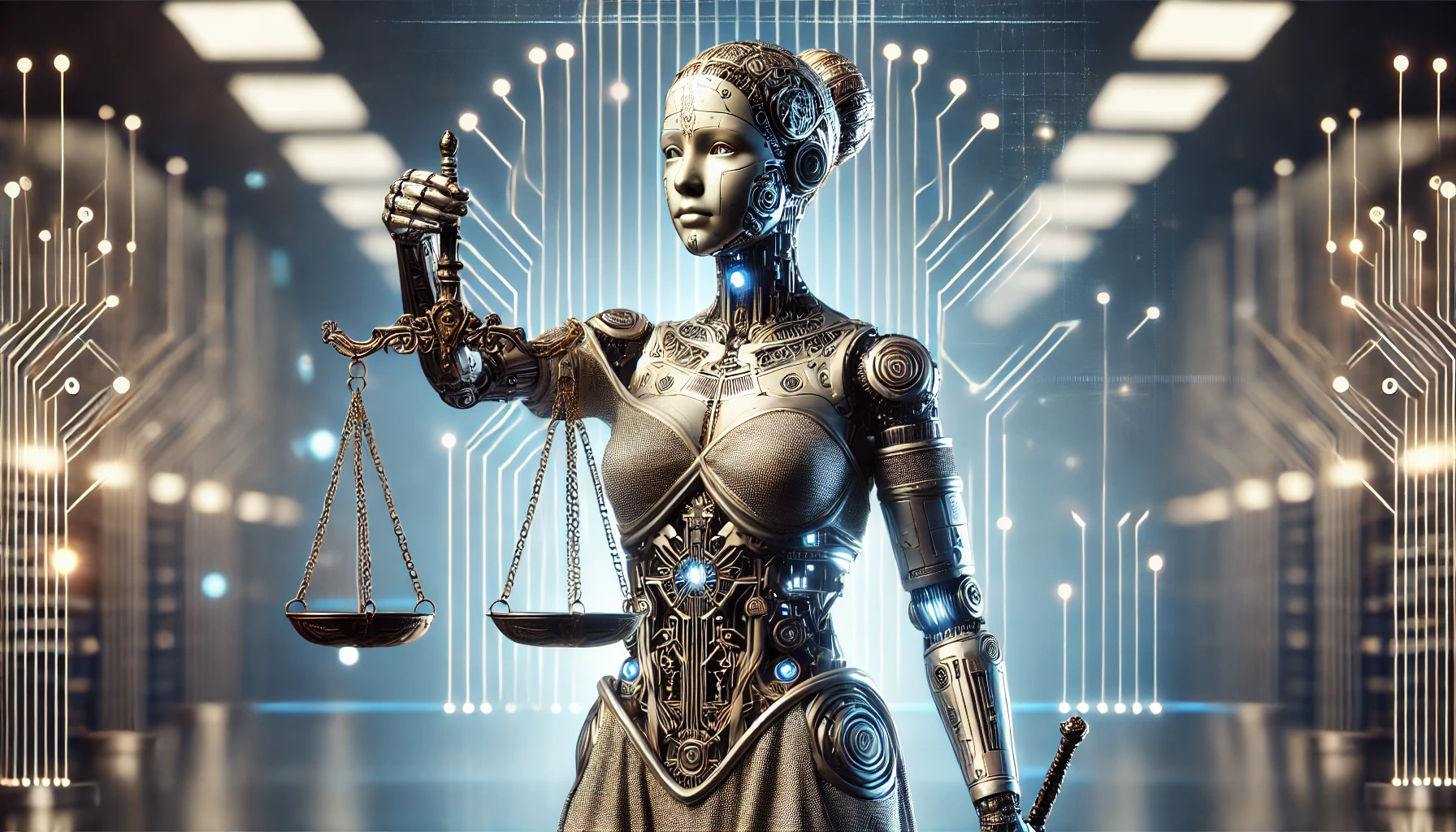
Is AI a double-edged sword for lawyers?
The legal industry is not traditionally recognized as one that is quick to embrace change, but recently, some professionals have been embracing emerging technology maybe a little too quickly, leading to all kinds of problems. The use of generative AI tools has exploded in popularity since OpenAI’s ChatGPT debuted in late 2022, and some lawyers have turned to this generative AI (GenAI) technology to help them with everything from legal research to contract drafting.
However, these GenAI models aren’t foolproof. In fact, they’re likely to “hallucinate” information that seems accurate but is actually entirely made up. If lawyers using this tech don’t take the time to double-check their outputs, they run the risk of working with factually incorrect information, which is embarrassing at best and grounds for legal repercussions at worst.

The newest AI revolution has arrived
Large-language models (LLMs) and other forms of generative AI are revolutionizing the way we do business. The impact could be huge: McKinsey estimates that current gen AI technologies could eventually automate about 60-70 percent of employees’ time, facilitating productivity and revenue gains of up to $4.4 trillion. These figures are astonishing given how young gen AI is. (ChatGPT debuted just under two years ago -- and just look at how ubiquitous it is already.)
Nonetheless, we are already approaching the next evolution in intelligent AI: agentic AI. This advanced version of AI builds upon the progress of LLMs and gen AI and will soon enable AI agents to solve even more complex, multi-step problems.
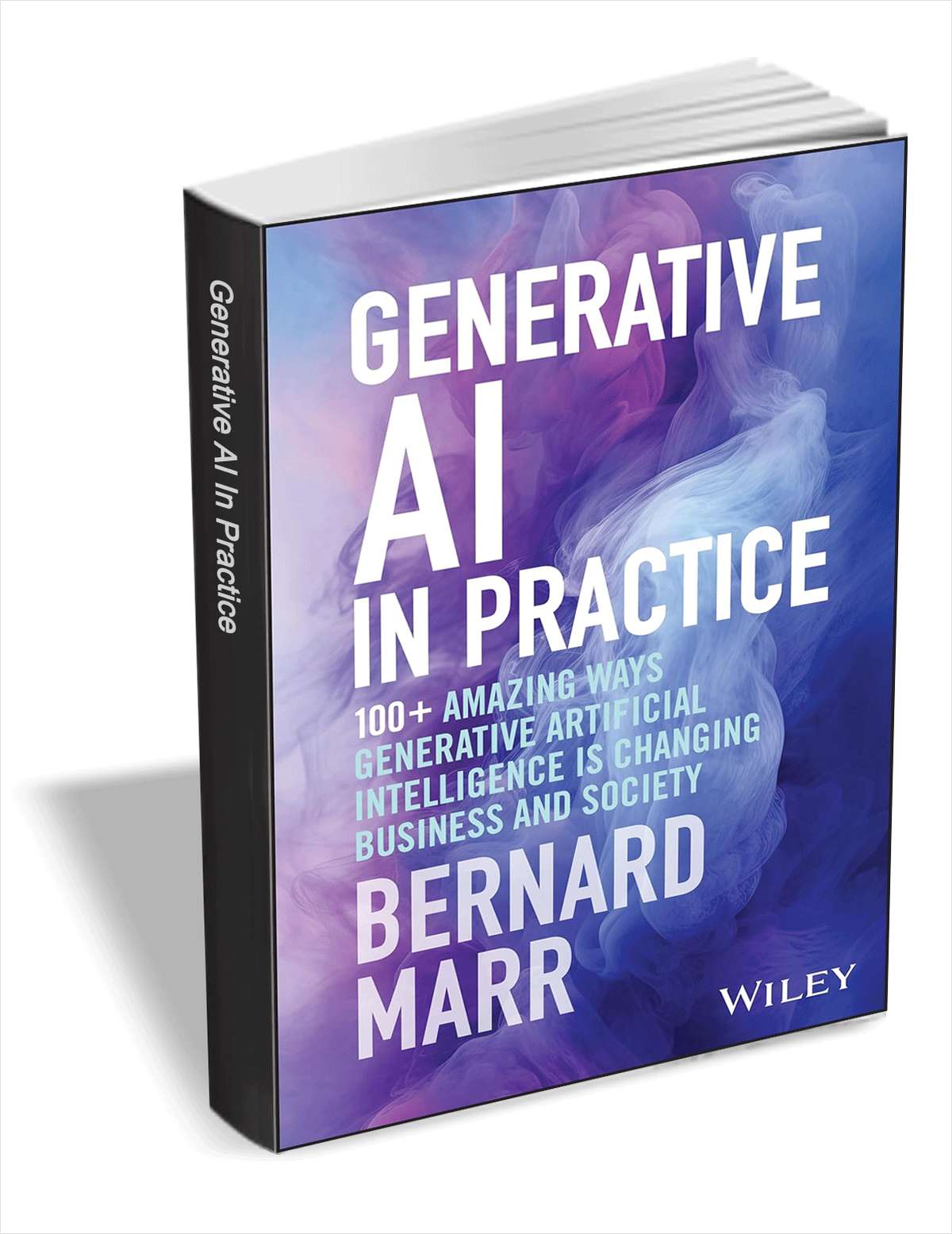
Save $23! Get 'Generative AI in Practice: 100+ Amazing Ways Generative Artificial Intelligence is Changing Business and Society' for FREE
Generative AI is rewriting the rulebook with its seemingly endless capabilities, from crafting intricate industrial designs, writing computer code, and producing mesmerizing synthetic voices to composing enchanting music and innovating genetic breakthroughs.
In Generative AI in Practice, renowned futurist Bernard Marr offers readers a deep dive into the captivating universe of GenAI. This comprehensive guide introduces you to the basics of this groundbreaking technology and outlines the profound impact that GenAI will have on business and society. Professionals, technophiles, and anyone with an interest in the future will need to understand how GenAI is set to redefine jobs, revolutionize business, and question the foundations everything we do.

Cheapfakes and deepfakes -- How to spot them
In recent weeks, the term ‘cheapfake’ has shot to the forefront of our national consciousness. Cheapfakes -- and their equally disruptive counterpart, deepfakes -- are becoming much more prevalent today, with the volume of this misleading content estimated to be doubling online every six months. That’s why the world’s leading search engines, social media networks and content publishers are taking notice. In recent weeks, Google announced a far-reaching plan to reduce the discoverability of deepfakes in their search rankings.
Luckily, you don’t need the resources of Google to spot altered media. Here, we’ll examine the primary differences between cheapfakes and deepfakes as well as the AI-based tools that can be used to decisively detect them.

Get 'Generative AI: Navigating the Course to the Artificial General Intelligence Future' FREE for a limited time
In Generative AI: Navigating the Course to the Artificial General Intelligence Future, celebrated author Martin Musiol -- founder and CEO of generativeAI.net and GenAI Lead for Europe at Infosys -- delivers an incisive and one-of-a-kind discussion of the current capabilities, future potential, and inner workings of generative artificial intelligence.
In the book, you'll explore the short but eventful history of generative artificial intelligence, what it's achieved so far, and how it's likely to evolve in the future. You'll also get a peek at how emerging technologies are converging to create exciting new possibilities in the GenAI space.
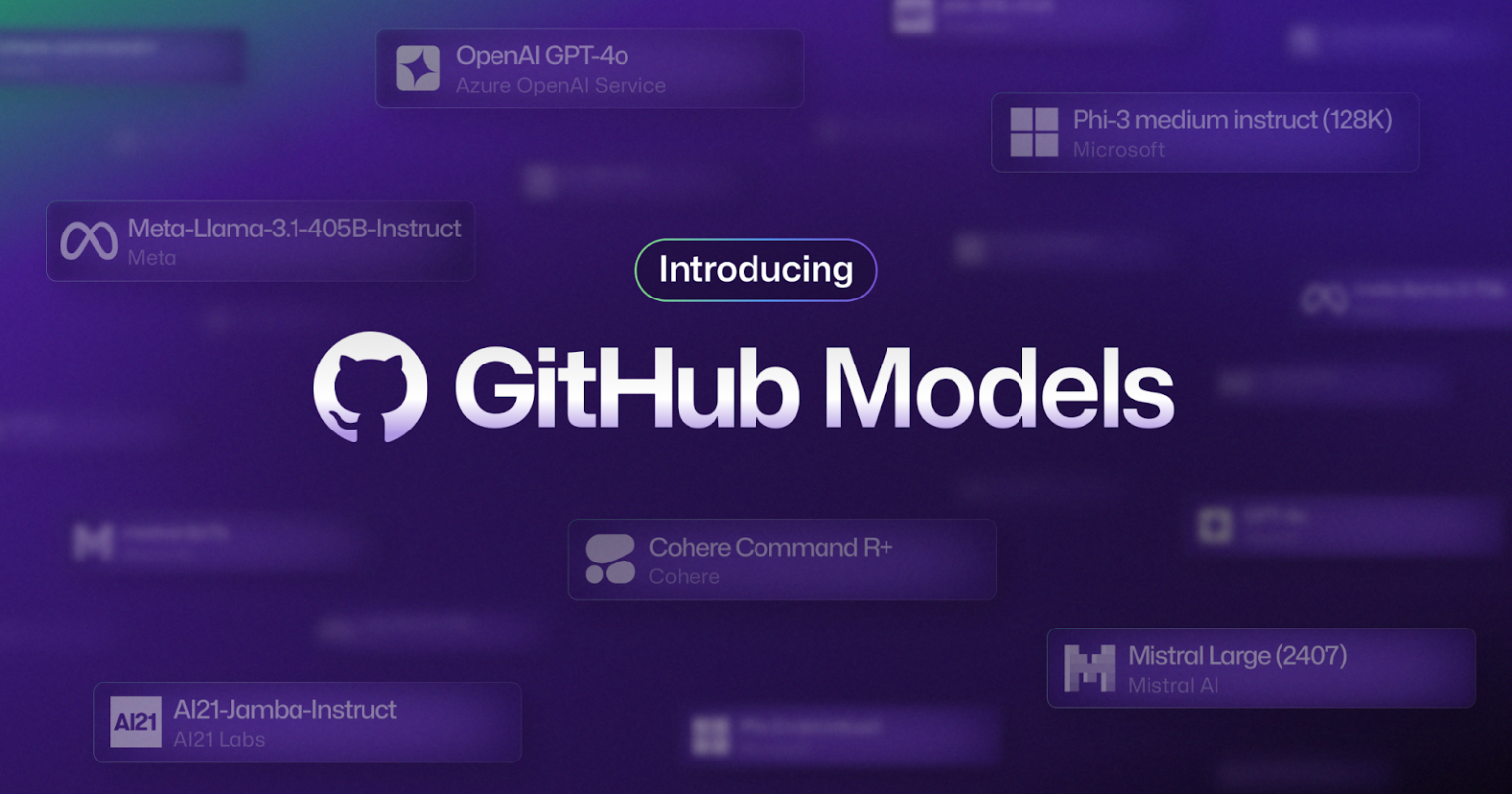
Microsoft launches GitHub Models, offering 100 million developers easy access to leading AI tools
Microsoft has introduced "GitHub Models," a new platform that enables over 100 million developers to integrate AI into their software projects by providing access to a variety of AI models. This includes popular models like Llama 3.1, GPT-4o, and Mistral Large 2, among others. Developers can explore these models for free through a built-in model playground on GitHub, where they can experiment with different prompts and model parameters.
The integration of GitHub Models into Codespaces and Visual Studio Code aims to simplify the development process, allowing developers to easily transfer what they've learned and experimented with into their own environments. Backed by Azure AI, the platform offers enterprise-grade security, privacy, and availability, which is vital for running AI applications at scale. GitHub Models is also designed to adhere to strict privacy and security standards, ensuring that no data used in the model playground is shared with external parties or used to train the models.

Transforming quality assurance in healthcare using GenAI
The global MedTech software market is projected to reach $598.90Bn by 2024 growing 5.3 percent annually due to increased R&D investments. As the market shifts towards tech-first patient care, MedTech software must meet quality and regulatory standards to ensure effective care and patient safety, making Quality Assurance (QA) critical throughout the Software Development Life Cycle (SDLC). QA ensures reliability, functionality, and adherence to industry standards with MedTech companies dedicating 31 percent of their software budget to QA and testing.
Artificial Intelligence (AI) tools have enhanced healthcare QA efficiency -- GenAI is notably reducing manual testing, improving software usability, and enhancing code quality. AI adoption is expected to make software testing more autonomous, boosting QA productivity by nearly 20 percent, with GenAI tools projected to write 70 percent of software tests by 2028.

Get 'ChatGPT for Cybersecurity Cookbook' (worth $39.99) for FREE
ChatGPT for Cybersecurity Cookbook takes you on a journey toward enhancing your cybersecurity skills, whether you’re a novice or a seasoned professional. By leveraging cutting-edge generative AI and large language models such as ChatGPT, you'll gain a competitive advantage in the ever-evolving cybersecurity landscape.
This book shows you how to automate and optimize various cybersecurity tasks, including penetration testing, vulnerability assessments, risk assessment, and threat detection.
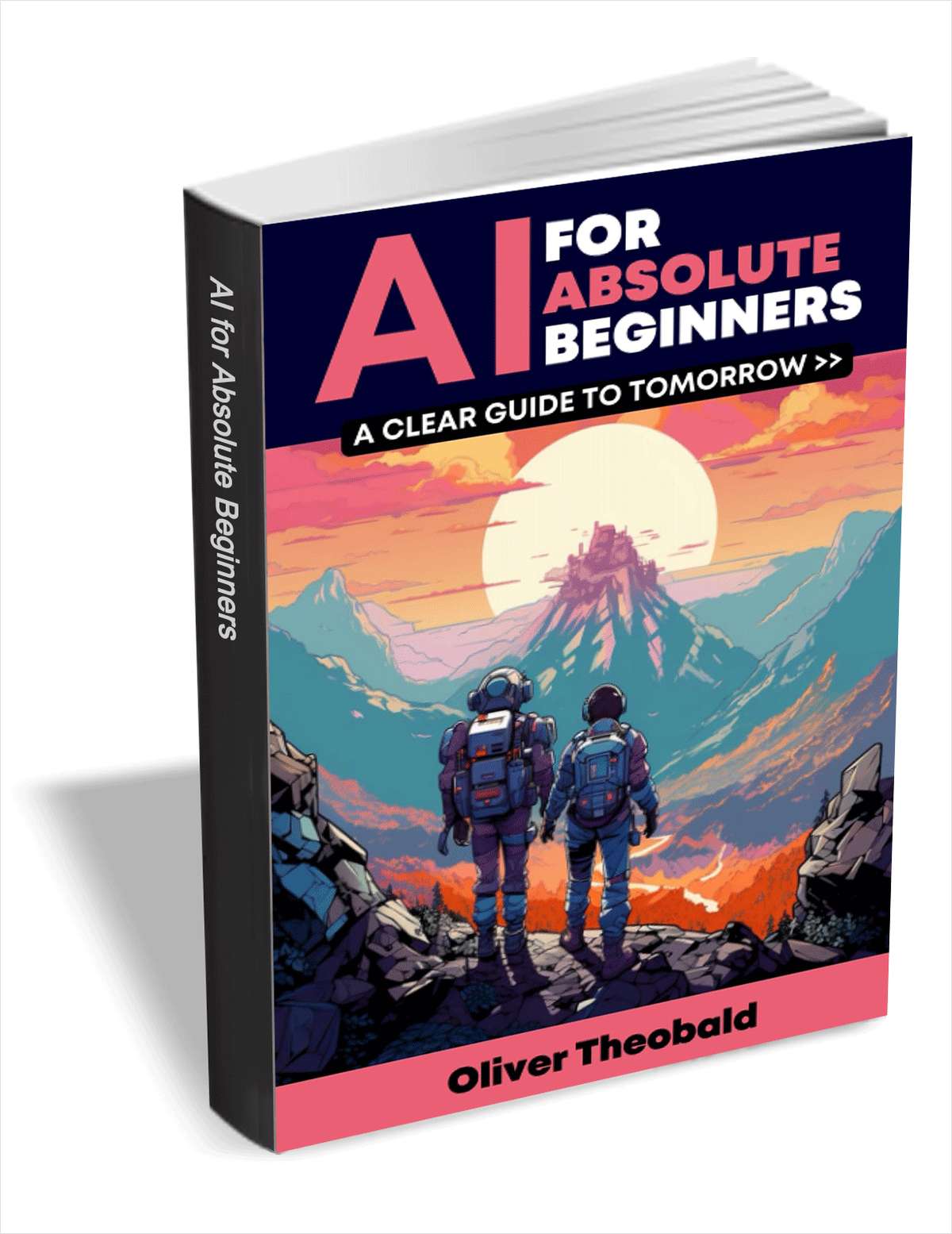
Get 'AI for Absolute Beginners' (worth $9.99) for FREE
AI for Absolute Beginners begins with an engaging introduction to the world of Artificial Intelligence, making it approachable for those with little to no knowledge on the subject.
The book unravels the mysteries of AI's evolution, from its historical roots to the cutting-edge technologies shaping our future. By explaining complex concepts in simple terms, this guide aims to illuminate the path for those curious about how AI impacts our world.

Poisoning the data well for Generative AI
The secret to generative AI’s success is data. Vast volumes of data that are used to train the large language models (LLMs) that underpin generative AI’s ability to answer complex questions and find and create new content. Good quality data leads to good outcomes. Bad, deliberately poisoned, or otherwise distorted data leads to bad outcomes.
As ever more organizations implement generative AI tools into their business systems, it’s important to reflect on what attackers can do to the data on which generative AI tools are trained.
